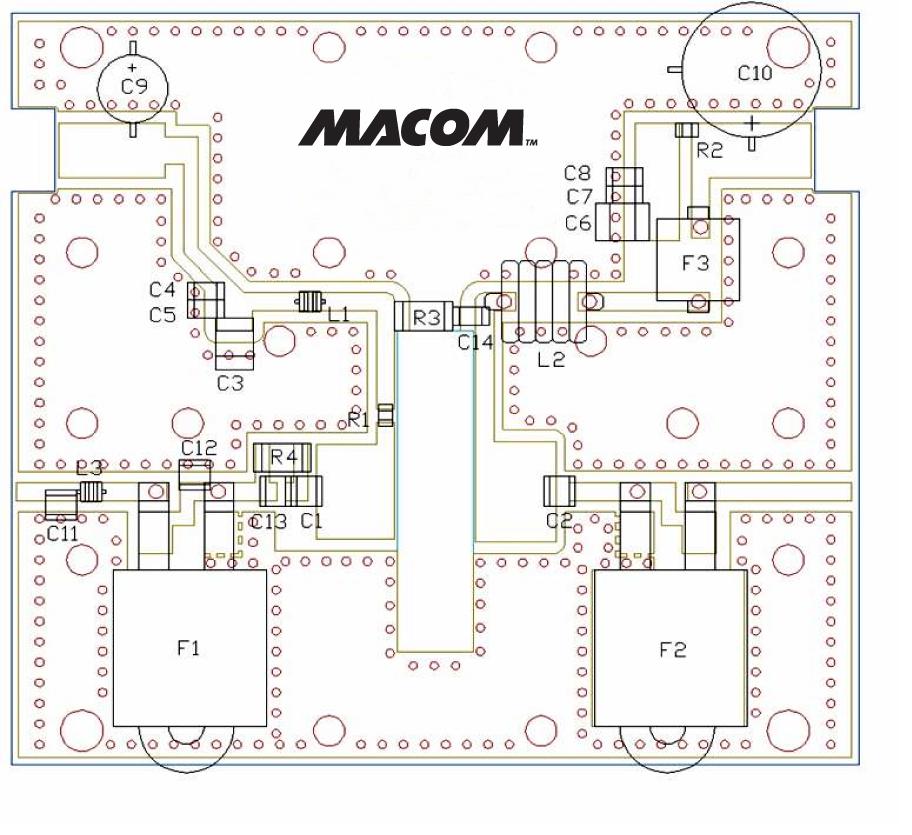Matching 4 Ohms over multi-octave or even decade-plus bandwidth is a serious challenge. If however we raise the supply to 48V, then the natural load line becomes 12 Ohms, which matches to 50 Ohms with a simple wideband 4:1 impedance transformer. That is the fundamental breakthrough used in the base building block of Figure 4, a 30-512 MHz amplifier that provides almost 100W with 60% typical efficiency.

Components F1 and F2 are ferrite loaded broadband 4:1 impedance transformers made with semi rigid coax and a ferrite binocular core. The near ideality of the GaN device, specifically its low inherent output capacitance, is evidenced by the stark simplicity of the output match – nothing more than one transformer and a coupling capacitor.
With this PA block in place, the system designer can select a reference design from Table 2 to satisfy specific applications spanning from UHF to L-band.

A 100W capable 48V GaN device from multiple vendors will generally support this performance. However, gain, power, efficiency, linearity, reliability, and cost though will vary somewhat so designers should evaluate those several options to find the best fit to their requirements. As an example: thermal impedance can vary from about 1° C/W to nearly 3° C/W, so only some of these devices are truly suitable for CW operation.
Conclusion
This article discussed the use of RF Power GaN for broadband MILCOM radio applications. With the recent introduction of low-to-medium power integrated PAs with broadband performance, design for these challenging applications has never been easier. At UHF frequencies, using a simple 4:1 impedance transformer enables straightforward 100W class PA solutions, while slightly more complex impedance matching networks allow for even higher frequency range performance. GaN is proving to be the semiconductor technology to address current and future MILCOM PA needs.





